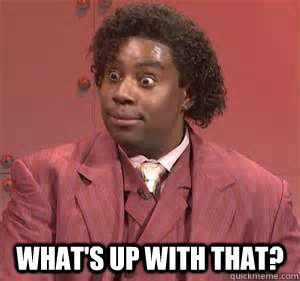Damnation by Faith
Image

(Read the series so far.)
As far as I can tell the Roman Catholic Church now teaches that the most likely way to go to hell is to believe Roman Catholic doctrine. Allow me to support this from a series of quotes from the Catechism of the Catholic Church (CCC).
The CCC teaches that Protestants who disbelieve the doctrine of the Roman Catholic Church are likely saved:
CCC-818: However, one cannot charge with the sin of the separation those who at present are born into these communities [that resulted from such separation] and in them are brought up in the faith of Christ … . All who have been justified by faith in Baptism are incorporated into Christ. (Brackets in original.)
CCC-819: Christ’s Spirit uses these Churches and ecclesial communities as means of salvation, whose power derives from the fullness of grace and truth that Christ has entrusted to the Catholic Church.
However, believing Roman Catholics who have committed mortal sins or have not participated in the sacraments (particularly penance and confirmation) necessarily go to hell.
CCC-1129: The Church affirms that for believers the sacraments of the New Covenant are necessary for salvation. (Emphasis in original.)
CCC-1856: Mortal sin, by attacking the vital principle within us—that is, charity—necessitates a new initiative of God’s mercy and a conversion of heart which is normally accomplished within the setting of the sacrament of reconciliation.
CCC-1446: Christ instituted the sacrament of Penance for all sinful members of his Church: above all for those who, since Baptism, have fallen into grave sin, and have thus lost their baptismal grace and wounded ecclesial communion. It is to them that the sacrament of Penance offers a new possibility to convert and to recover the grace of justification. The Fathers of the Church present this sacrament as “the second plank [of salvation] after the shipwreck which is the loss of grace.” (Brackets in original.)
Thus if a saved Protestant accepted Catholic doctrine, he would lose his salvation by believing Roman doctrine. He would stop being saved because he believed the doctrine of Rome and yet had not been confirmed or received penance. Thus disbelief and ignorance saves but faith and knowledge of the truth damns.
This is also the case for non-Christian religions and atheists:
CCC-847: This affirmation is not aimed at those who, through no fault of their own, do not know the Gospel of Christ or his Church, but who nevertheless seek God with a sincere heart, and, moved by grace, try in their actions to do his will as they know it through the dictates of their conscience—those too may achieve eternal salvation.
CCC-2125: The imputability of [atheism’s] offense can be significantly diminished in virtue of the intentions and the circumstances.
CCC-1735: Imputability and responsibility for an action can be diminished or even nullified by ignorance, inadvertence, duress, fear, habit, inordinate attachments, and other psychological or social factors.
Thus the non-Catholic with the greatest likelihood of salvation is a tyrannized, ignorant, distracted, frightened person with inordinate attachments separated from the gospel. To attempt to remove duress, fear, bad habits, inordinate attachments, and provide the gospel increases responsibility and therefore the likelihood of damnation.
Or to put it another way an atheist with a bad case of inadvertence is possibly saved, but by drawing his attention to the gospel he is damned if he remains an atheist or ever returns to being an atheist.
While we can imagine different responses by apologists, the catechism is clear that believing Catholic doctrine makes salvation dependent on participating in the sacraments and that salvation can be lost on a daily if not moment by moment basis. It is also clear that a category of Protestant, Jews, Muslims, pagans, and possibly atheists are saved while explicitly rejecting or in ignorance of Roman doctrine. Catholics are saved and potentially damned by believing Catholic doctrine and non-Catholics are saved by believing some true things and by their disbelief or ignorance of the Roman system.
The moment that a saved non-Catholic believes Catholic doctrine he or she loses their salvation and is forced to gain salvation back by entering into the sacramental system. Within this system, there is no confirmation of salvation, and each mortal sin—lust, dishonoring parents, lying, theft, murder, and adultery—requires the sacrament of reconciliation prior to death and last rites. Yet a saved Protestant, who remains ignorant of church history and papal doctrine, resides secure in his ignorance and disbelief according to the catechism. We can say the same for saved non-Christians.
We arrive then at something new in church history—damnation by faith as dogma.*
It won’t take a sophisticated Catholic apologist much time to close the loophole I’ve noted. The reflex action is to declare such things a mystery as was recently done in a discussion by Rome of Jews who reject Christ. I anticipate a mystery of divine mercy in comparison to mean spirited Protestants.
Even so, we need to inform our congregations and our young people that Roman Catholicism requires faith plus works for the salvation of Catholics and ignorance for the salvation of everyone else. According to Roman Catholic dogma the best way for a Protestant to lose his salvation is believe the gospel as taught by the Pope.
Further, we need to talk to our Catholic neighbors about this multitude of mysteries; the covering of mystery grows very thin when it explains so much. And the enigma melts before passages like Romans 10:9-14:
If you confess with your mouth that Jesus is Lord and believe in your heart that God raised him from the dead, you will be saved. For with the heart one believes and is justified, and with the mouth one confesses and is saved. For the Scripture says, “Everyone who believes in him will not be put to shame.” For there is no distinction between Jew and Greek; for the same Lord is Lord of all, bestowing his riches on all who call on him. For “everyone who calls on the name of the Lord will be saved.” How then will they call on him in whom they have not believed? And how are they to believe in him of whom they have never heard? And how are they to hear without someone preaching?
* Pascal mentions a similar problem in his Provincial Letters, but limits the issue to Catholics with Jesuit confessors.
Shane Walker Bio
Shane Walker became the pastor of Andover Baptist Church, Linthicum, MD in June of 2007. Raised in Iowa, Shane graduated from the University of Iowa in 1996. He holds a Master of Divinity degree from The Southern Baptist Theological Seminary. He and his wife, Kimberly, have four children: Hannah, Malee, James, and John.
- 56 views
Yes,the answer of “mystery” is how the RCC handles so many of its theological problems. I was asked to read the Genesis 1 creation account at a Catholic funeral for a relative. The surviving spouse had to go through some red tape to allow such a non-funeral text to be read at a funeral, but he got it done.
The relatives did not believe in young earth creation, but had interest in creation myths. But I read the text with meaning and, obviously, belief. The elderly catholic priest (a truly warm and loving man) made the comment about the text being such a “mystery.’
To me, it was straightforward truth. To him — assuming he accepts evolution as many Catholics do — it was a mystery. How many times can they play that trump card? I guess as long as they can get away with it. Roman Catholic people themselves seem untroubled by this.
"The Midrash Detective"
My wife, baptized and reared in R/C, rejecting & renouncing “the faith” at 23 (time of conversion) is going to hell.
Me, never associate with it, heaven bound!

My wife and I were raised Roman Catholic, too.
"The Midrash Detective"




Discussion